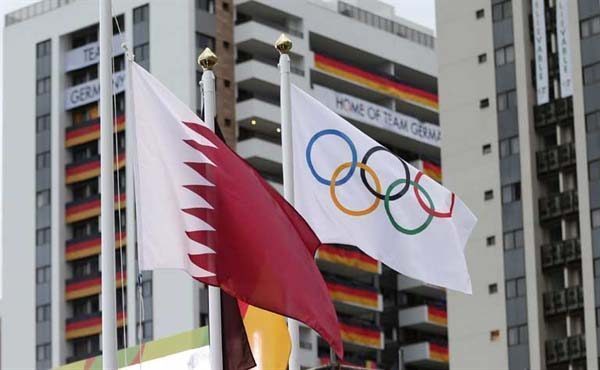
Though the Summer Olympics have wrapped up in Rio, the widespread debate about Qatar and other countries’ use of non-homegrown athletes continues.
In this opinion piece, Dr. Justin Thomas, associate professor of psychology at Zayed University in the UAE, argues that maybe it’s time athletes simply compete as individuals, rather than represent an entire nation.
There have been a few eyebrows raised about the fact that almost 60 percent of Qatar’s Olympic delegation was born outside of the country.
Earlier this month, the Washington Post ran an article with the headline, “Qatar wanted an Olympics team. So it recruited one from 17 other countries.”
But why is this seen as such a big deal?
In the modern world, few events evoke such powerful feelings of national pride as the Olympics.
Seeing a person draped in your national flag, singing your national anthem, as they ascend the stairway to national hero/heroine status, can make you swell with national pride.
Globalization
But, in our shrunken, globalized world, ideas about nationality and citizenship are changing rapidly.
Increasingly, the person representing a country at the Olympics wasn’t born in that country, and they may have only very recently become a citizen of the nation they now represent.

Qatar is far from being the only country that is represented by naturalized athletes.
In the 2012 London Olympics, the UK recruited more foreign-born athletes than ever before; and lest we forget, 2012 was a particularly good games for Team GB.
Unfair practice?
Critics of the practice of naturalizing foreign athletes can get pretty wound up about it.
Back in 2012, some uncharitable commentators began referring to Team GB’s foreign-born athletes as “plastic-Brits.”
Similarly, oil-rich Azerbaijan was heavily criticized for fielding a 2012 Olympic team that contained over 50 naturalized-citizens.
Opponents of this practice argue that fielding recently naturalized-citizens dampens the emotional spirt of the games.

There likely won’t be any patriotic tears if the guy wearing gold on the podium can’t speak the national language, and is hearing his new national anthem for the first time.
Others are against the practice because they fear wealthy nations will snap up all the best talent, resulting in national Olympic teams becoming as international as a typical English Premier League football club.
Like the rich football clubs of Europe, some Olympic teams will come to dominate certain events, not through the power of passion and perseverance, but through the self-perpetuating power of the purse.
The other side
But there is another side to this argument.
There are people who think the Olympics would be improved by relaxing its focus on citizenship.
Why do athletes need to represent countries, anyway?
I can play for Manchester Uniter football club without being born in Manchester.

Why can’t Olympians just compete against each other without any reference to a nation?
When Ben Johnson was stripped of his gold in 2002, it was Johnson who was stripped of the medal. It was Johnson who was shamed, not Canada.
Focusing on the athletes and not their countries actually fits with the current Olympic charter.
Article 6 states: “The Olympic Games are competitions between athletes in individual or team events and not between countries.”
Another argument in favor of relaxed citizenship rules at the Olympics is that it would help circumvent the current national quota system.
If you were the fifth best Javelin thrower in the world, but couldn’t get a seat on the Olympic bus because the top-four ranked throwers happened to be your compatriots, you might be very happy to compete under another flag.

As for team events, they could simply comprise of individuals from various nations. This would probably improve competition and break up the monopoly on Gold that some nations presently have.
As our world shrinks from global village to global villa, there are some who see the idea of the nation state as being just a little dated.
In his book The End of the Nation State, Japanese management consultant Kenichi Ohmae suggested that “the nation state is increasingly a nostalgic fiction.”
Perhaps the increase in naturalized citizens competing in the Olympics is just an example of sport imitating reality.
Thoughts?
Disclaimer: The views expressed in this Opinion article are the author’s own and do not necessarily reflect Doha News’ editorial policy.







